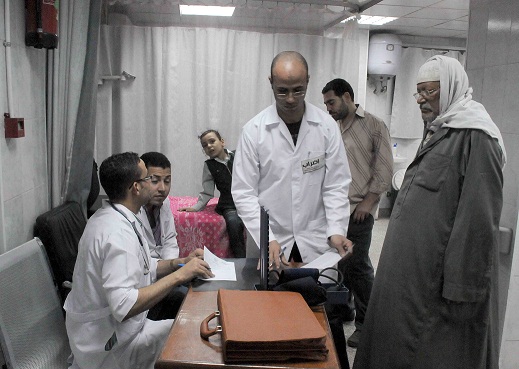
Field Marshal Abdel Fattah Al-Sisi resigned from his position as head of Egypt’s armed forces and defence minister during a national address Wednesday and announced he would run for president.
The announcement came following a meeting between Al-Sisi and the Supreme Council of the Armed Forces, headed by interim President Adly Mansour, who flew back from Kuwait City to attend the meeting.
“I have spent my entire life serving my country and I will continue to do so,” Al-Sisi said during Wednesday night’s address. “I consider myself a soldier serving my country in any capacity desired by Egyptians.”
Al-Sisi said that he could offer “hard work and self-denial” should he become Egypt’s next president.
“I promise that together, [Egypt’s] leadership and people can achieve stability, safety and hope for Egypt,” Al-Sisi said.
Al-Sisi stressed that building a future for the country is a “joint effort” between the people and their leader. He added that, like the leader, the people have a commitment to “work hard and show patience.”
All Egyptians are faced with difficult missions, Al-Sisi said. Such missions include: rebuilding the state apparatus, resuming production in all sectors, and recovering the state’s “posture”.
“Our mission is to reclaim and build Egypt,” Al-Sisi said.
The Field Marshal also addressed the issue of “terrorism”, saying that Egypt is threatened by “parties who seek the destruction of our life, safety and security.”
“It is true this is my last day in uniform but I will fight every day to free Egypt of fear and terror,” Al-Sisi said. “I’d rather die than see Egyptians terrorised.”
The presidential hopeful noted that Egypt is facing “monumental” challenges and a “weak” economy.
Among the problems he said Egyptians face were: youth unemployment, disease and the absence of proper treatment, adding that Egypt, despite being rich in resources, depends on “aids and loans”.
“This is all unacceptable,” Al-Sisi said. “Egyptians deserve a life of dignity, security and freedom.”
Al-Sisi said that the circumstances Egypt has faced in recent years have allowed other countries to “trespass” on its sovereignty. He added that “disrespecting” Egypt has become “an adventure with consequences.”
“Egypt is not a playground for any internal, regional or international party, and will never be,” he said.
Addressing his presidential campaign, Al-Sisi promised a “clear platform that seeks a modern and democratic Egypt”, to be announced as soon as the Supreme Electoral Commission formally opens the door for nomination for office. He nevertheless described his presidential campaign as “untraditional” and discouraged an“extravagant” one, adding that the current circumstances “are not in our favour.”
Shortly before the meeting was over, interim President Mansour promoted Lieutenant General Sedki Sobhi to General. He is expected to replace Al-Sisi as Minister of Defence.
Al-Sisi was defence minister under former President Mohamed Morsi and during the interim government following Morsi’s ouster in July 2013.
The 2014 constitution bars any military personnel from entering the presidential race. Al-Sisi has previously said he “cannot ignore the will of the people”, enjoying much support for a presidential bid.
Hamdeen Sabahy, head of the Al-Tayar Al-Sha’aby movement, is the only person who has confirmed his intention to run for president.
During his national address, Al-Sisi stressed that his presidential bid should not “deny others their right and duty to run for president if they see themselves competent to undertake such a responsibility.”
Ahead of the announcement, various parties expressed their desire to see Al-Sisi become Egypt’s seventh president. The Supreme Council of the Armed Forces endorsed Al-Sisi to run for president in January and Russian President Vladimir Putin said in February that he knew Al-Sisi intended to run for president and wished him luck.
Al-Sisi was promoted to Field Marshal in January by Mansour.
The 6 April Youth Movement recently announced its opposition to Al-Sisi’s candidacy, arguing that it would only serve to deepen divisions in Egypt.
The Muslim Brotherhood and its affiliates in Egypt are vehemently opposed to Al-Sisi becoming president, as it is their view that Morsi is still Egypt’s legitimate president. Al-Sisi made the announcement in July that an interim president and cabinet would be appointed to replace Morsi and his government.


